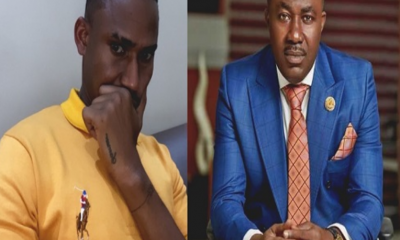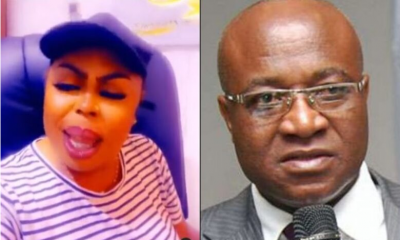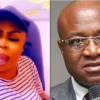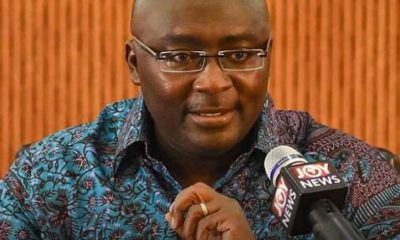Gossip
President Mugabe and Ghana’s economy
It has not been usual for President Robert Gabriel Mugabe of Zimbabwe to criticise political and economic affairs of other African countries.
He had always aimed his verbal jabs at Western nations that do not agree with his revolutionary and socialist style of governance.
Mr Mugabe was endeared to Ghana, particularly Kwame Nkrumah’s Ghana.
Before he became a politician, Prime Minister and later President of Zimbabwe, Mr Mugabe attended Achimota College where he was trained as a teacher.
He taught at Apowa Secondary School in Takoradi and Saint Mary’s Training College. He married a Ghanaian, Sally Hayfron, his Achimota College mate, in 1961.
They both left Ghana to Zimbabwe where Sally’s husband pursued his political career. Sally remained a faithful wife while her husband was in prison from 1964 to 1974.
They had a son who died in Zimbabwe. Sally died in 1992 when her husband was President of Zimbabwe. Mr Mugabe married again – to a Zimbabwean and had more children.
This December, President Mugabe, for once, broke his own code – despite his very close connections with Ghana where he grew his first political tooth.
His decision to wade into Ghana’s post-independence political and economic affairs was not premeditated. He was provoked to outpour his thoughts about Ghana’s economic problems.
Zimbabwe has, for years, been bogged down with what looked like intractable economic and political problems. His Vice-President, Joice Mujuru, had asked him to adopt Ghana’s economy as a model.
President Mugabe responded as follows: “I have been to Ghana, 1958 to 1960, and when you look at them now and compare their present situations to that which existed in the 1960s – no change”.
He continued: “There might be more people. Yes. There may be one road from airport which has been well done so that people who visit the country think that everything is okay”.
“That’s about all. No change. There are still areas where not all children go to school… and you wonder why. It’s because they have been under the control of countries like France. European countries like that,” President Mugabe added.
Are all that President Mugabe said about Ghana true?
Former President John Agyekum Kufuor who ruled Ghana for eight years (2001-2008) said Mr Mugabe was wrong.
“That is his opinion and I will leave it at that… But Ghana definitely has made more improvements, fantastic improvements from the 1960s.
“The population now is near 30 million. That time, 1960s, 1970s, Ghana’s population was just about 10 million and that’s a lot of difference in terms of physical development and other aspects,” former President Kufuor continued.
Nana Addo Danquah Akufo-Addo, New Patriotic Party (NPP) 2016 presidential candidate, took advantage of President Mugabe’s criticism of Ghana’s post-independence economic woes to repeat his call for a drastic transformation of Ghana’s economy.
At an Aliu Mahama Memorial Lecture in Accra last week, Nana Akufo-Addo declared that the Ghanaian economy must break away from the Guggisberg model of the 1920s characterised by production and export of raw materials and transform into what South Korea has become.
President Mugabe’s point has been that Ghana is not a good economic model for his country.
The present economic problems, including weakness of the Ghanaian Cedi, poor ranking from rating firms, reduced economic growth, unemployment and labour unrest, must be some of the grounds for his refusing to adopt Ghana as a model.
However, President Mugabe was wrong when he said that Ghana had not changed at all since the 1960s. That Ghana’s airport road is the only well-made street in Accra is false.
President Mugabe was in Ghana in 2008 for the African Union conference. He saw that Accra, the capital, was not what it used to be in the 1960s.
There is no country in Africa, especially in sub-Saharan Africa, where literacy is 100 per cent.
In 1983, Ghana’ literacy rate was 30 per cent. Zimbabwe’s was 50 per cent in 1985. In 2005, Zimbabwe’s literacy rate shot up to 90.7 per cent; Ghana’s also moved up to 74.8 per cent the same period.
Has Zimbabwe something to learn from Ghana?
The 2014 index of economic freedom published by Heritage Foundation, a think-tank and a research and education institute, provides the answer.
The economy of Zimbabwe is ranked 176th, the least in the world, by the World Bank.
In sub-Saharan Africa, of 46 countries studied, Zimbabwe’s economy was last.
The economy has dropped by 13 points within the last 20 years.
The country has been described by rating firms as a nation characterised by “economic instability and policy volatility”.
Indiscriminate land seizures from white farmers, economic mismanagement and international political and economic sanctions crippled the economy. The Zimbabwe dollar was devalued by 100 per cent.
The economy began to recover following the rapprochement between the ruling party and Zimbabwe opposition parties, improved democratic practice and relaxation of economic sanctions.
Conversely, Ghana’s economy is ranked 66th by the World Bank. Of 46 sub-Saharan African countries studied, Ghana placed fifth.
Ghana’s economic freedom index has shot up by nine points with “moderately free” ranking.
Although at an advanced age of 90, President Mugabe is not sympathetic with Ghana’s economic problems, his views on Ghana, partly inaccurate, should serve as “food for thought”.
No country has been able to develop — as South Korea, China and India for example, have done — without a strong and sustainable agricultural base for a take-off.
Ghana must start a green revolution to serve as a take-off point for the economy.
Massive irrigation of the Accra and Prampram plains by tapping the Volta River downstream can become the beginning of Ghana’s agricultural revolution.
Global warming, climate change and deforestation are reducing, annually, land available for farming. But Ghana can make up through use of sea water by ingenious engineering and reengineering.
Source: graphic.com.gh















